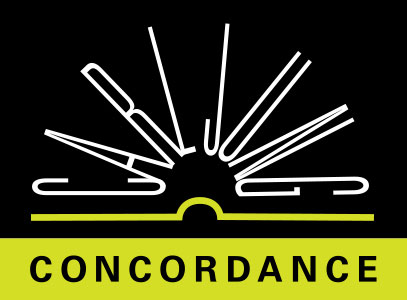The first of two main groups of transformation:
EXPERIENCE OF THE
`TRANSCENDENCE OF LIFE'
By the “transcendence of life” I mean those experiences of the initiate who takes part in a sacred rite which reveals to him the perpetual continuation of life through transformation and renewal
CW9.1 ¶ 208FATEFUL TRANSFORMATIONS
OF DEATH AND REBIRTH
In these mystery-dramas the transcendence of life, as distinct from its momentary concrete manifestations, is usually represented by the fateful transformationsdeath and rebirthof a god or a godlike hero
CW9.1 ¶ 208The initiate may either be a mere witness of the divine drama or take part in it or be moved by it, or he may see himself identified through the ritual action with the god. In this case, what really matters is that an objective substance or form of life is ritually transformed through some process going on independently, while the initiate is influenced, impressed, “consecrated,” or granted “divine grace” on the mere ground of his presence or participation
CW9.1 ¶ 208TRANSFORMATION PROCESS TAKES
PLACE OUTSIDE THE INITIATE
The transformation process takes place not within him but outside him, although he may become involved in it. The initiate who ritually enacts the slaying, dismemberment, and scattering of Osiris, and afterwards his resurrection in the green wheat, experiences in this way the permanence and continuity of life, which outlasts all changes of form and, phoenix-like, continually rises anew from its own ashes. This participation in the ritual event gives rise, among other effects, to that hope of immortality which is characteristic of the Eleusinian mysteries
CW9.1 ¶ 208THE MASS IS AN EXAMPLE
OF A MYSTERY DRAMA
A living example of the mystery drama representing the permanence as well as the transformation of life is the Mass. If we observe the congregation during this sacred rite we note all degrees of participation, from mere indifferent attendance to the profoundest emotion
CW9.1 ¶ 209The groups of men standing about near the exit, who are obviously engaged in every sort of worldly conversation, crossing themselves and genuflecting in a purely mechanical wayeven they, despite their inattention, participate in the sacral action by their mere presence in this place where grace abounds
CW9.1 ¶ 209The Mass is an extramundane and extratemporal act in which Christ is sacrificed and then resurrected in the transformed substances; and this rite of his sacrificial death is not a repetition of the historical event but the original, unique, and eternal act
CW9.1 ¶ 209The experience of the Mass is therefore a participation in the transcendence of life, which overcomes all bounds of space and time. It is a moment of eternity in time
CW9.1 ¶ 209SPONTANEOUS EXPERIENCE
All that the mystery drama represents and brings about in the spectator may also occur in the form of a spontaneous, ecstatic, or visionary experience, without any ritual
CW9.1 ¶ 210Nietzsche's Noontide Vision is a classic example of this kind. Nietzsche, as we know, substitutes for the Christian mystery the myth of Dionysus-Zagreus, who was dismembered and came to life again
CW9.1 ¶ 210His [Nietzsche's] experience has the character of a Dionysian nature myth: the Deity appears in the garb of Nature, as classical antiquity saw it, and the moment of eternity is the noonday hour, sacred to Pan: “Hath time flown away? Do I not fall? Have I not fallenhark!into the well of eternity?”
CW9.1 ¶ 210Even the “golden ring,” the “ring of return,” appears to him as a promise of resurrection and life. It is just as if Nietzsche had been present at a performance of the mysteries
CW9.1 ¶ 210MYSTIC EXPERIENCES THAT DO
NOT CHANGE SPECTATOR'S NATURE
Many mystic experiences have a similar character: they represent an action in which the spectator becomes involved though his nature is not necessarily changed
CW9.1 ¶ 211In the same way, the most beautiful and impressive dreams often have no lasting or transformative effect on the dreamer. He may be impressed by them, but he does not necessarily see any problem in them. The event then naturally remains “outside,” like a ritual action performed by others
CW9.1 ¶ 211These more aesthetic forms of experience must be carefully distinguished from those which indubitably involve a change of one's nature
CW9.1 ¶ 211